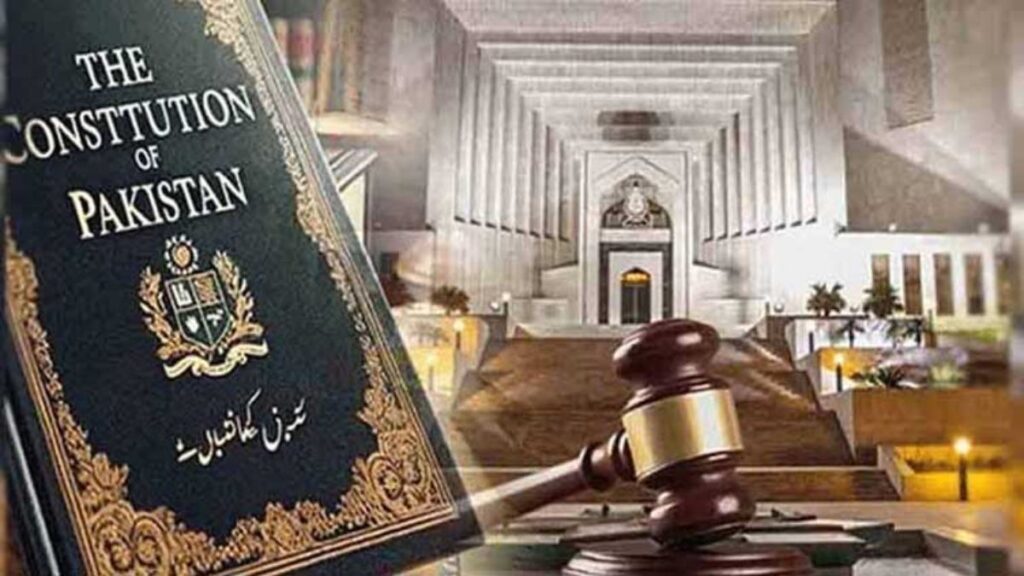ISLAMABAD (Kashmir English): Ever since the 27th Constitutional Amendment came to light, it’s been surrounded by false propaganda narratives.
In this regard, here is a detailed explanation as to how this amendment is aimed at institutional strengthening and administrative reform, rather than any reconfiguration of constitutional power.
”Establishment is Grabbing Power”
One of the most common propaganda narratives dispersed is that, through this amendment, the government or the establishment is trying to grab all the power and authority.
In actuality, the amendment proposes to set up a Constitutional Court to dispose of the constitutional cases more quickly.
It would also free up the Supreme Court to concentrate on appellate matters, legal consistency, and the development of precedent. As framed by officials, it represents a structural division of judicial workload, not an alteration of authority.
”The Amendment Weakens Judicial Independence”
The second propaganda, which is being widely spread, is that this amendment will weaken Judicial Independence; however, the amendment proposes standardization in judicial posting, rotation, and tenure.
Aiming to reduce discretionary influence and personal favoritism in appointments. As described by experts in judicial matters, the aim is to make independence systemic and institutional, not selective or personality-dependent.
”18th Amendment Autonomy Remains Intact”
The NFC Award review is related to fiscal sustainability, not political control. The federal government supports these proposals by saying that it aims to strike a proper balance between revenue distribution and expenditure responsibilities, so that devolution will succeed in practice, not just on paper.
”Changes to Article 243 Will Politicize the Army”
The changes bring the Pakistan Defence structure in line with current joint-warfare standards found in China, India, and other major defence states.
The hierarchy of command remains constitutionally unchanged, while the changes mainly focus on coordination and strategic planning, not political interference.
”The Amendment Weakens the Election Commission (ECP)”
The amendment proposes clear timelines and neutral procedures for appointments to the Election Commission of Pakistan (ECP). The reform has been planned to end political deadlocks and enhance administrative autonomy, which would theoretically make the ECP more independent and operationally consistent.
”Restoring Magisterial Powers Revives Executive Control”
The handing down of limited magisterial powers with judicial supervision aims at accelerating the process of settling disputes at the local levels.
As officials explained, this increases access to justice at the grassroots level without restoring the old system of uncontrolled executive power.
”The 27th Amendment is a Revolutionary System Overhaul”
Experts describe the amendment as evolutionary, not revolutionary. It aims to strengthen institutional efficiency, coordination among constitutional bodies, and the development of maturity in governance, and not necessarily redistribute power or reshape the state.
The 27th Constitutional Amendment is a maturity-stage reform that aims at enhancing performance, clarity, and accountability in Pakistan’s governance framework, insist the officials.
They added that any political narrative about the constitutional change being a power shift is misleading and without any substance.




